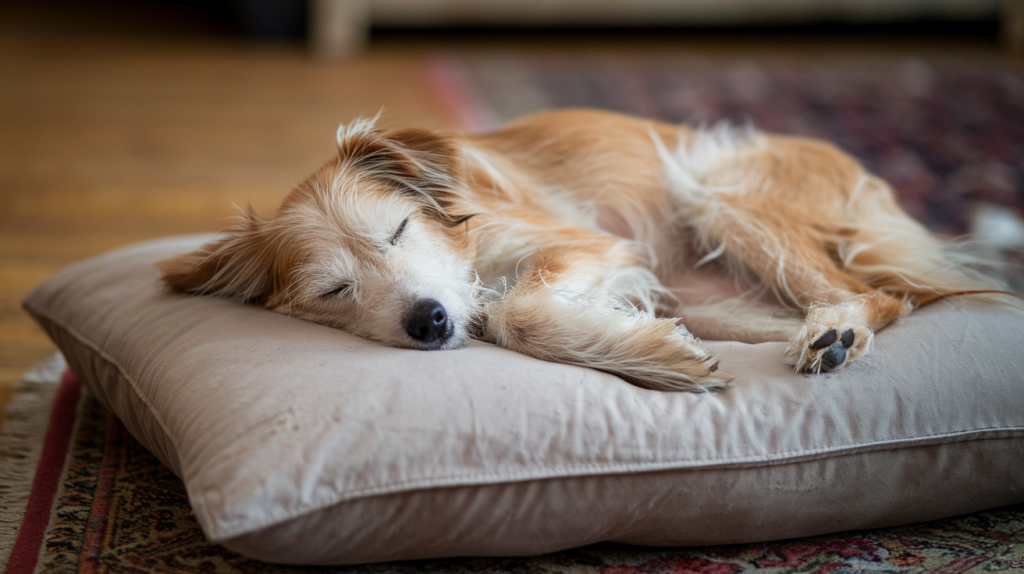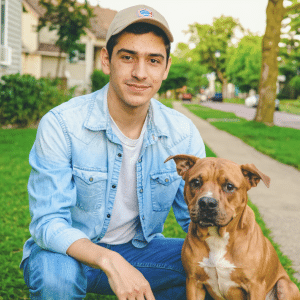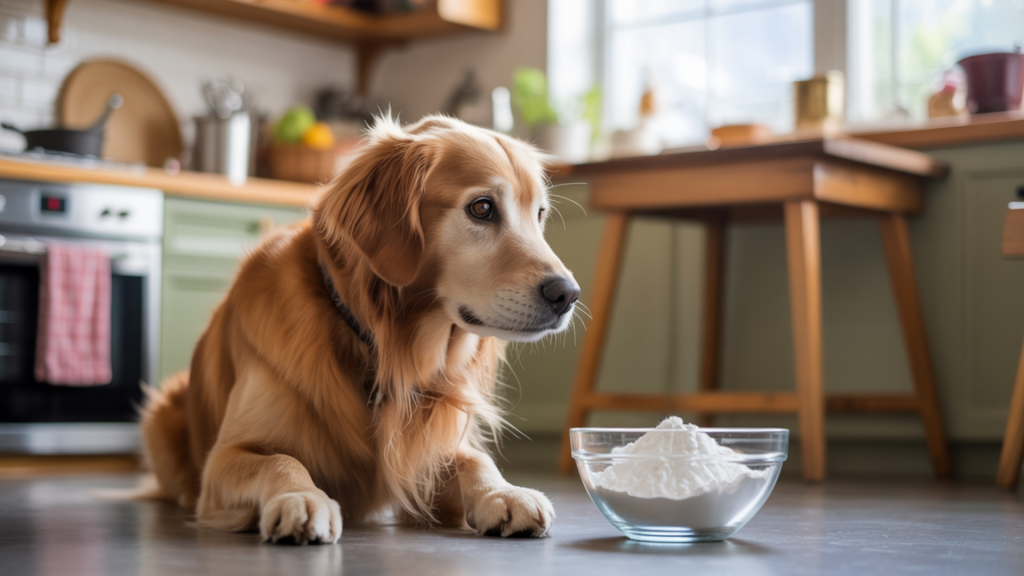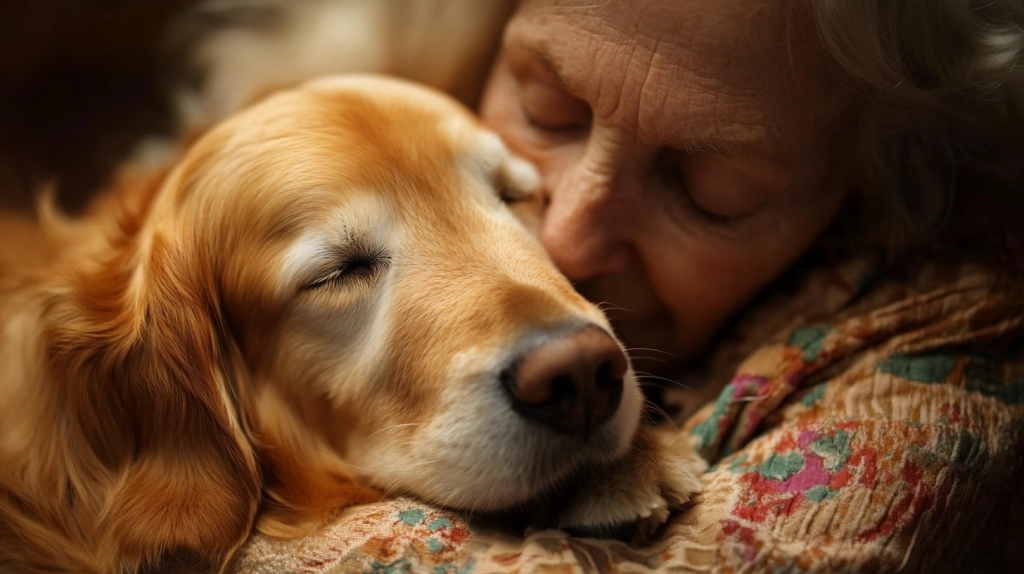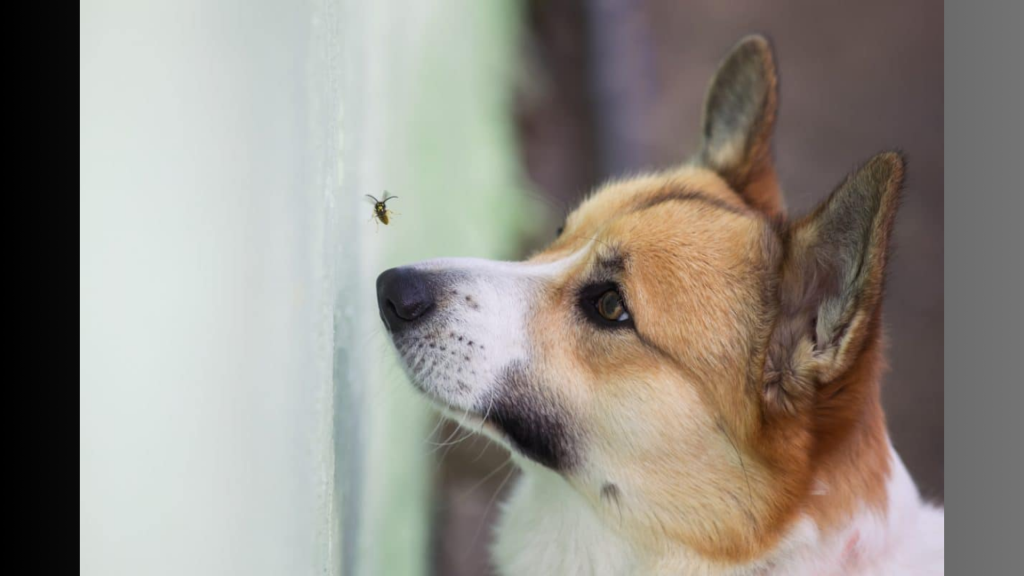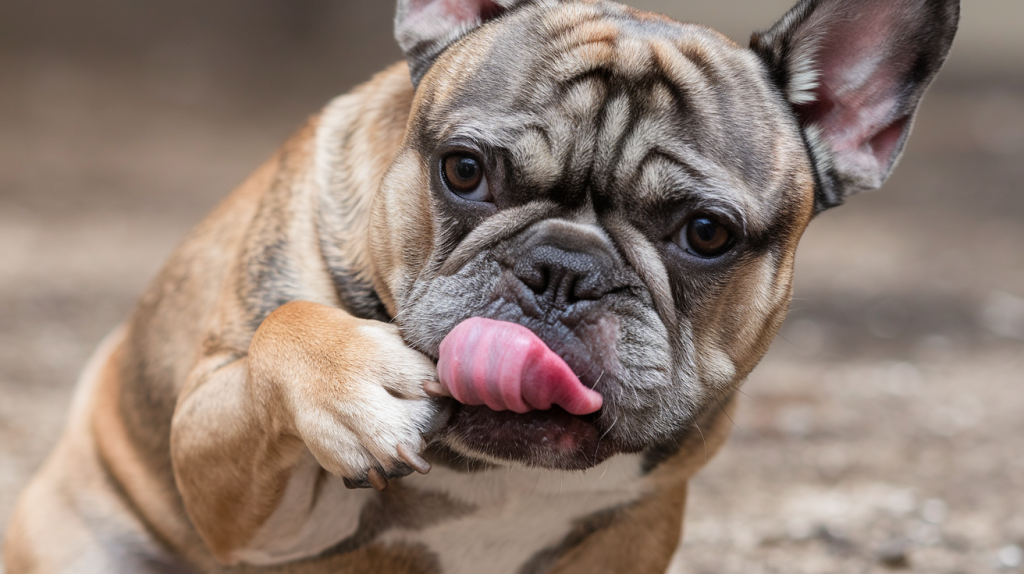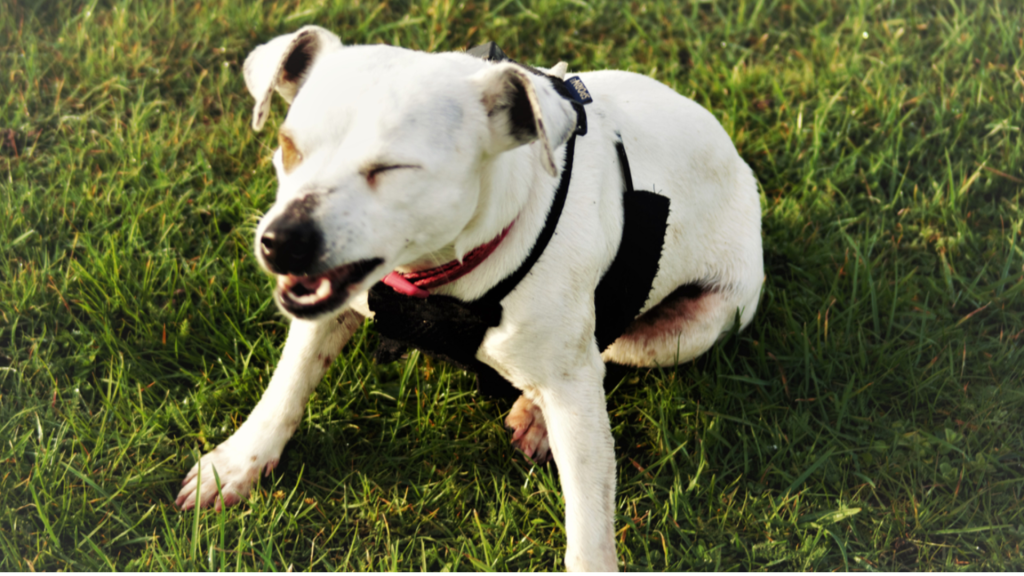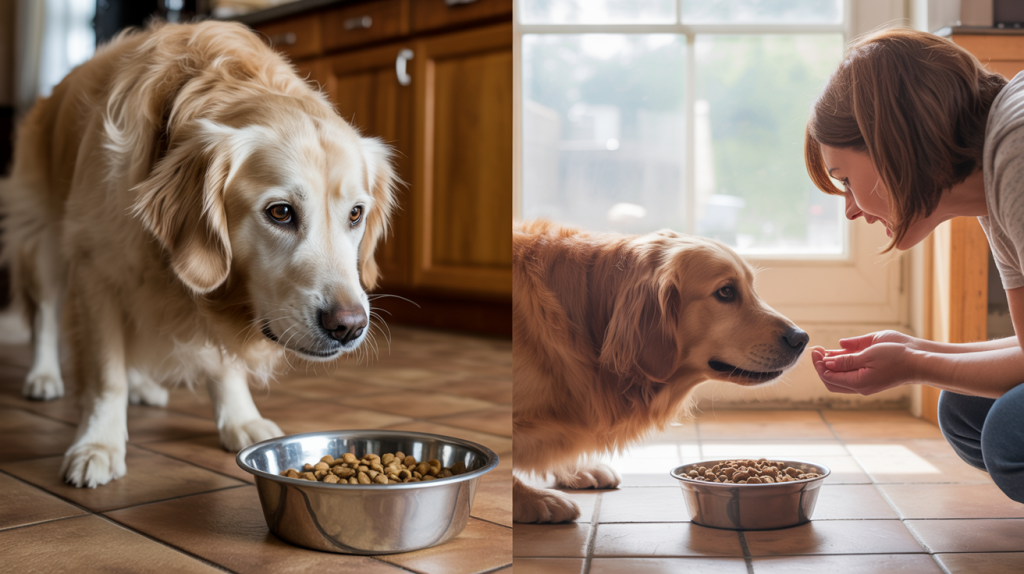Have you ever wondered why does my dog lay on my pillow the moment you leave the bedroom? Most dog owners can relate to this common scene.
You come home to find your pet curled up on your pillow, looking perfectly content. This behavior might seem puzzling, but it’s actually quite normal.
This blog post will explain the main reasons “why does my dog lay on my pillow by explaining the main reasons dogs love sleeping on their owner’s pillows.
You’ll learn about their need for closeness, how scent plays a role, and what this behavior really means.
Why Dogs Love Your Pillow?
Dogs may choose your pillow because it retains warmth longer than other spots in the room. Pillows, especially after you’ve used them, hold both your scent and your body heat.
Dogs are naturally drawn to warm, comfortable places to rest, and your pillow can feel especially cozy after you’ve just gotten up.
This combination of warmth and familiar scent makes your pillow an irresistible spot for your dog, especially during colder months or in air-conditioned rooms.
Reasons Dogs Lie on Your Pillow
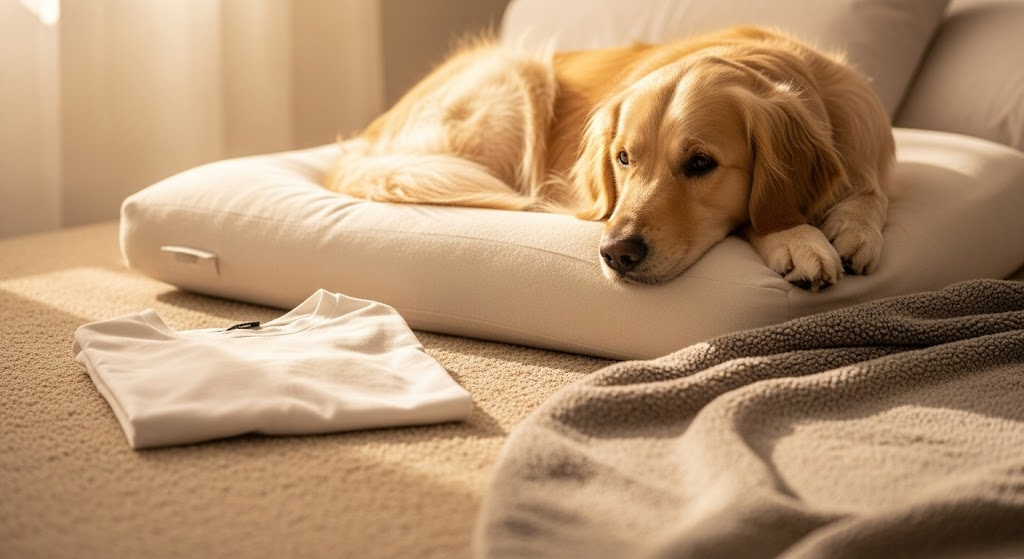
If you’ve ever wondered, why does my dog lay on my pillow, you’re not alone. Many dog owners notice this behavior and want to know what drives it.
Understanding why dogs choose this spot reveals deeper insights into canine instincts and emotional needs, shaped by thousands of years of evolution and domestication
Behavioral Insights
Understanding why dogs choose pillows goes deeper than simple comfort preferences. Canine behavior is shaped by thousands of years of evolution and domestication.
Pack Mentality at Play
Dogs still carry strong pack instincts from their wild ancestors. In a pack, members sleep close together for warmth, protection, and social bonding. Your dog sees your family as their pack.
Sleeping on your pillow strengthens this connection and keeps them close to their group leader.
Anxiety, Separation, or Routine
Some dogs turn to their owner’s pillow during stressful times or when left alone. The familiar scent provides emotional support and reduces anxiety.
Other dogs simply develop this as a daily habit. Once they start using the pillow regularly, it becomes part of their normal routine.
Mimicking Human Behaviors
Dogs are excellent at watching and copying human actions. They observe their owners using pillows for head support during sleep. Through this observation, dogs learn that pillows serve a purpose for comfort.
They may try using pillows the same way, copying their owner’s bedtime behavior.
Psychological Reasons
When it comes to pillow preferences, several emotional factors drive this choice beyond simple physical comfort.
Comfort-Seeking When You’re Away
Dogs experience separation differently than humans might expect. When their favorite person leaves home, dogs look for ways to feel connected and secure.
Your pillow becomes a substitute for your physical presence. The familiar scent and texture help reduce feelings of loneliness during these times.
Associating the Pillow with Good Experiences
Dogs have excellent memories when it comes to places where they’ve felt happy and loved. If your dog has received pets, treats, or cuddles while near your pillow, they remember these good moments.
The pillow becomes linked with feelings of joy and attention in their mind.
Smell as a Calming Tool
Your personal scent acts as a natural stress reliever for your dog. Scientific studies show that familiar scents can lower cortisol levels in dogs, helping them feel more relaxed.
When dogs breathe in their owner’s scent from a pillow, it triggers the release of calming hormones naturally.
Should You Be Concerned?
| Concern | What to Watch For | Suggested Action |
|---|---|---|
| Hygiene & Allergies | Dirt, dander, drool, odors, parasites, allergic reactions | Wash bedding often, treat pets for fleas, and consider limiting access |
| Anxiety/Over-Attachment | Whining, panic, guarding the pillow, refusal to sleep elsewhere | Observe behavior; seek professional help if obsessive or disruptive |
| Losing Sleep | Restlessness, snoring, bed-hogging, disrupted sleep patterns | Establish clear sleep boundaries for comfort and rest on both sides |
Training Tips on How to Break the Pillow Habit
If you’re asking, why does my dog lay on my pillow, and how can I change this behavior?
The key is making other sleeping spots more appealing while gently redirecting their behavior. Here are practical steps that work:
- Make their bed the better option. Invest in a high-quality, plush dog bed that’s elevated off the ground. Place a worn t-shirt or pillowcase with your scent on their bed to recreate the comfort they seek from your pillow.
- Set clear boundaries from day one. Close bedroom doors during training periods or use baby gates to limit access. Teach the “off” command using a firm but gentle voice, and practice it consistently every time they approach your pillow.
- Reward good choices immediately. When your dog chooses their own bed over your pillow, give them treats, praise, and attention right away. This positive reinforcement makes them want to repeat the behavior.
- Create a bedtime routine they’ll love. Establish a consistent schedule where your dog gets special attention or treats when they settle in their designated sleeping area. This helps them look forward to their own space.
- Stay patient and consistent. Avoid yelling or punishing your dog when they’re on your pillow. Simply redirect them to their bed and reward them when they comply.
When to Seek Help from a Trainer or Vet
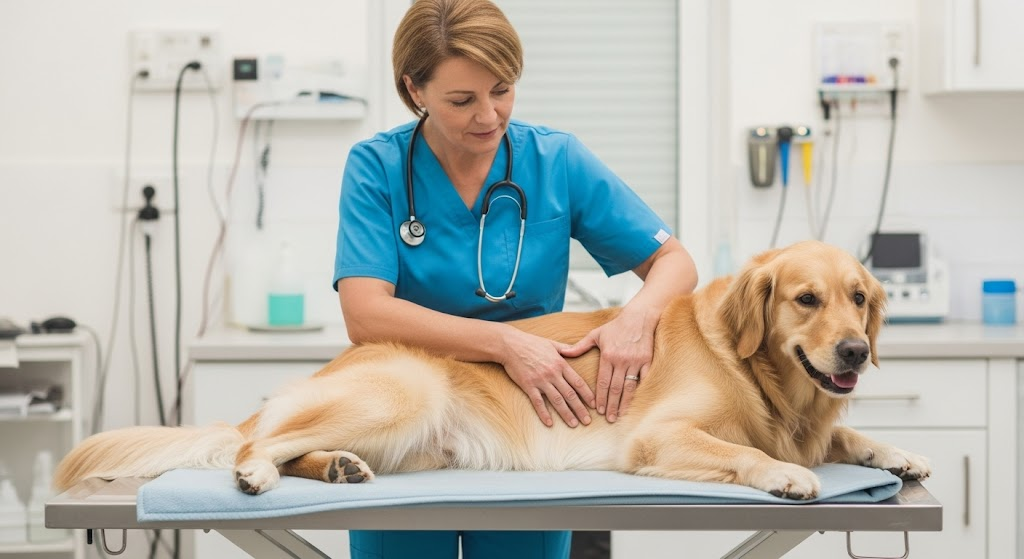
Contact a certified dog trainer if your pet shows aggressive behavior when removed from pillows, destroys furniture when blocked from bedrooms, or can’t settle anywhere else despite consistent training efforts.
Schedule a vet visit if pillow obsession develops suddenly in older dogs, as this could signal cognitive changes or health issues.
Professional help is also needed when the behavior disrupts your family’s daily life or sleep for more than a few weeks.
Trainers can assess whether the pillow habit stems from deeper anxiety issues that require specialized treatment plans.
Don’t wait if your dog’s attachment to pillows includes resource guarding, excessive drooling, or signs of distress when separated from the scented item.
To Conclude
Understanding why does my dog lay on my pillow comes down to three simple factors: scent, comfort, and connection.
These behaviors stem from natural canine instincts that have developed over thousands of years of companionship with humans.
If the behavior becomes problematic, consistent training and patience usually solve the issue. Remember that sudden changes in sleeping patterns might signal health concerns worth discussing with a veterinarian.


